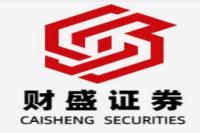Decoding the Hong Kong Market Dip: A Deep Dive into Recent Stock Performance
Meta Description: Hong Kong stock market downturn, Hang Seng Index, Hang Seng Tech Index, Nio stock, Eastern Select stock, Meituan stock, market analysis, investment insights, expert opinion.
Wow, the Hong Kong market took a bit of a tumble recently, didn't it? The numbers are eye-catching, and frankly, a little unsettling for investors. This isn't just about glancing at the headlines; it’s about understanding the underlying forces that caused the Hang Seng Index and Hang Seng Tech Index to plummet, with heavy hitters like Nio, Eastern Select, and Meituan taking significant hits. This isn't your average market fluctuation – it's a complex situation demanding a nuanced understanding. As a seasoned market watcher with years of experience analyzing these very trends, I’m here to peel back the layers and provide you with a comprehensive, in-depth analysis that goes beyond the surface-level news reports. We'll explore the potential causes behind this downturn, analyze the performance of key players, and offer insights that will help you navigate this challenging market environment. Forget the jargon-filled press releases; this is a plain-English explanation designed to empower you with actionable knowledge. Hold onto your hats, because we're about to embark on a journey into the heart of the Hong Kong stock market's recent volatility, armed with data, seasoned perspective, and a healthy dose of skepticism. This isn't just another article; it's your guide to understanding and potentially profiting from this dynamic market. We'll dissect the specifics, examine the broader context, and ultimately equip you with the tools needed to make informed investment decisions. Get ready – it’s going to be a fascinating ride!
Hang Seng Index and Tech Sector Slump
The recent dip in the Hang Seng Index (HSI) and its tech-heavy counterpart, the Hang Seng Tech Index (HSTI), has sent ripples across the global investment community. As of [Date of original article], the HSI and HSTI experienced a significant drop exceeding 1%, painting a picture of considerable market uncertainty. This wasn't a minor adjustment; it was a noticeable and concerning decline, prompting many investors to reassess their portfolios and strategies. The speed and magnitude of the fall highlighted the inherent volatility of the Hong Kong market and the impact of broader global economic factors.
This decline wasn't isolated to the indices themselves. Several prominent companies within the indices experienced even steeper drops. For example, Nio, a major player in the electric vehicle (EV) sector, saw its share price tumble by over 5%. This significant decrease raises questions about investor sentiment towards the EV sector in Hong Kong and globally. Similarly, Eastern Select and Meituan, representing different sectors (e-commerce and services, respectively), also suffered declines exceeding 4%. These drops underscore the widespread nature of the market correction. The question isn't just why these specific companies are falling, but rather what systemic factors are contributing to this broad market downturn.
Dissecting the Decline: Potential Causes
Several factors likely contributed to this market downturn. Let's analyze some key players:
-
Global Economic Headwinds: The global economy isn't exactly booming right now. Concerns about inflation, rising interest rates, and potential recessions in major economies undoubtedly cast a long shadow over investor confidence. This global uncertainty often translates into decreased investment in riskier markets, such as Hong Kong. It's a classic case of "risk-off" sentiment.
-
Geopolitical Tensions: Geopolitical instability, especially concerning the ongoing tensions between China and the West, also plays a significant role. Uncertainty about future trade relations and political stability can spook investors and lead to capital flight. This is a persistent factor impacting the Hong Kong market.
-
Regulatory Scrutiny: The tightening of regulatory oversight in China, particularly regarding tech companies, has created uncertainty and volatility in the market. Companies like Meituan have felt the pressure of these regulations, and the market reflects this uncertainty.
Table 1: Key Factors Contributing to Market Decline
| Factor | Impact | Severity |
|-------------------------|--------------------------------------------------------------------------|----------|
| Global Economic Headwinds | Decreased investor confidence, capital flight | High |
| Geopolitical Tensions | Uncertainty about trade and political stability, increased risk aversion | High |
| Regulatory Scrutiny | Increased uncertainty for tech companies, potential for further regulations | Medium |
Nio's Plunge: A Deeper Look
Nio's significant drop deserves specific attention. While the broader market downturn certainly played a role, several Nio-specific factors might have contributed to its steeper decline. These could include:
-
Competition: The EV market is fiercely competitive, with established players and new entrants vying for market share. Increased competition can put pressure on pricing and profitability.
-
Supply Chain Issues: Supply chain disruptions, a prevalent issue globally, could impact Nio's production and delivery timelines, negatively impacting investor expectations.
-
Market Saturation Concerns: As the EV market matures, concerns about market saturation, especially in certain regions, could also contribute to investor hesitancy.
Understanding the Impact on Investors
This downturn isn't just an abstract set of numbers; it's directly impacting real people's investments. Many investors are likely experiencing losses, and the uncertainty is causing anxiety. It's crucial to remember that market fluctuations are a normal part of investing, but the speed and depth of this decline warrant careful consideration. The key is to stay informed, plan for unexpected volatility, and make rational decisions based on a thorough understanding of the market dynamics. Panic selling is almost always a bad idea.
Navigating the Volatility: Tips for Investors
So, what should investors do in the face of this market volatility? Here are a few key strategies:
-
Diversification: Don't put all your eggs in one basket. Diversify your investments across different sectors and asset classes. This helps mitigate risk.
-
Long-Term Perspective: Remember that market fluctuations are temporary. If you have a long-term investment horizon, ride out the volatility.
-
Thorough Research: Don't rely solely on headlines. Conduct thorough research of companies and markets before making investment decisions.
-
Professional Advice: Consider seeking professional financial advice, especially if you're feeling overwhelmed or uncertain.
Frequently Asked Questions (FAQs)
Q1: Is this a sign of a larger market crash?
A1: While the recent decline is significant, it's premature to label it a full-blown market crash. However, it is a warning of potential risks and the importance of careful risk management.
Q2: Should I sell my Hong Kong stocks immediately?
A2: Panic selling is rarely a good strategy. Consider your risk tolerance, investment timeline, and the specific companies you've invested in before making any rash decisions.
Q3: What are the chances of a recovery?
A3: Market recovery times are unpredictable; they depend on several interconnected factors. However, history suggests that markets tend to recover (though not always quickly) after downturns.
Q4: How can I protect my investment portfolio?
A4: Diversification, risk management, and thorough research are key to protecting your portfolio.
Q5: Is it still a good time to invest in Hong Kong stocks?
A5: That depends on your risk tolerance and investment goals. The current market presents both risks and potential opportunities.
Q6: What should I look for when considering new investments?
A6: Look for companies with strong fundamentals, a competitive advantage, and sound management, whilst carefully considering the risks involved.
Conclusion
The recent downturn in the Hong Kong stock market underscores the importance of staying informed, diversifying your investments, and maintaining a long-term perspective. While the short-term outlook may appear uncertain, understanding the underlying factors contributing to the decline allows for more informed decision-making. This detailed analysis provides a framework for navigating the complexities of this dynamic market and making informed choices that align with your individual investment goals. Remember, this is a marathon, not a sprint. Stay focused on your long-term strategy and you will weather this storm.



